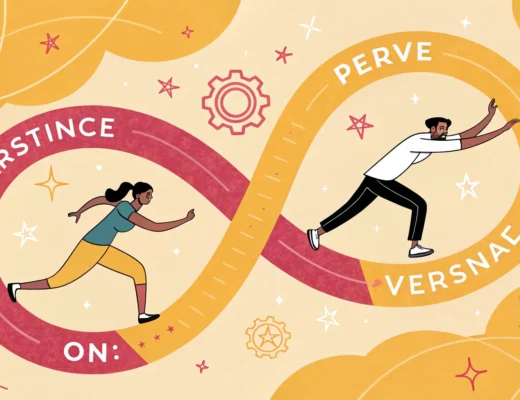Key Takeaways
- Mental health days are gaining popularity as a way to focus on mental well-being at work.
- They differ from regular days off because they’re specifically for mental and emotional health.
- With rising stress and anxiety, more employees are asking for these days.
- Taking a mental health day can boost productivity and improve overall quality of life.
- Discussing mental health days with your employer can help create a more supportive work environment.
Understanding Mental Health Days at Work
What Are Mental Health Days?
A mental health day is a break from work specifically to focus on your mental and emotional well-being. It’s like hitting the pause button when life feels overwhelming. Unlike a regular day off, a mental health day is about self-care. You might choose to relax, meditate, or just spend time doing things that make you happy. The idea is to recharge your mental batteries so you can return to work feeling refreshed.The Importance of Mental Health Days
Mental health days are becoming increasingly important as more people experience stress and anxiety at work. Taking these days can help prevent burnout, reduce stress, and improve your overall quality of life. They allow you to step back, breathe, and refocus. By acknowledging the importance of mental health days, workplaces can create a more supportive environment for employees.How Mental Health Days Differ from Regular Days Off
While both involve taking time away from work, the key difference lies in the intention. A mental health day is dedicated to activities that support your mental health, such as meditation, therapy, or spending time in nature. On a regular day off, you might run errands or tackle chores, which might not provide the same level of mental rejuvenation. Understanding mental health challenges, like disturbed sleep and anxiety, can help leaders create better environments for employees. Learn more about mental health challenges.The Growing Need for Mental Health Days
Rising Stress and Anxiety Levels
Lately, it feels like stress and anxiety are just part of everyday life. I mean, who doesn’t feel overwhelmed sometimes? Studies show that stress and anxiety levels are on the rise, and it’s not just adults feeling the heat. Kids and teens are also struggling with these feelings. It’s like everyone is trying to juggle too much at once, and something’s got to give.Impact on Workplace Productivity
When stress is high, productivity takes a nosedive. I’ve noticed that when I’m stressed, my brain feels like it’s in a fog. It’s hard to focus, and everything takes twice as long. This isn’t just me, though. Many people find that stress at work leads to mistakes and missed deadlines. Taking a mental health day can be like hitting a reset button, helping to clear the mind and get back on track.Employee Demand for Mental Health Days
Employees are starting to speak up about their need for mental health days. They don’t just want a day off; they need a recharge break. More and more companies recognize this need, and some even offer mental health days as part of their benefits package. It’s a small step, but it shows that mental health is finally getting the attention it deserves.How to Make the Most of Your Mental Health Day
Planning Your Day for Maximum Benefit
I remember the first time I took a mental health day. It wasn’t just about sleeping in or binge-watching TV. It was a day to recharge truly. Planning is key to making the most of it. Start by deciding what you need most. Is it rest, or maybe some physical activity? Perhaps you just need a quiet day to reflect. Write down a loose plan, but keep it flexible. Life happens and sometimes plans need to change, but having a basic outline helps keep the day intentional.Activities to Consider for Relaxation and Rejuvenation
Here are some activities I’ve found helpful:- Unplug from Social Media: It’s amazing how freeing it can be to disconnect. Use this time to reconnect with yourself or loved ones.
- Get Moving: Whether walking in the park or dancing in your living room, moving your body can boost your mood.
- Be Creative: Dive into a hobby, whether painting, playing an instrument, or gardening. Creativity can be incredibly therapeutic.
- Spend Time Outdoors: Nature has a way of soothing the soul. Even a short walk outside can make a big difference.
Reflecting on Your Mental Health Day Experience
After your mental health day, take a moment to reflect. What activities made you feel good? What didn’t work? This reflection isn’t just about the day itself but understanding what you need for your ongoing mental health. Maybe you found that breathing exercises helped reduce stress or that walking boosted your mood. Use this insight to plan future mental health days or incorporate these practices into your daily life. Remember, it’s about finding what works for you and making it a regular routine.Communicating the Need for Mental Health Days at Work
Talking to Your Manager or HR
So, you’re thinking about asking for a mental health day. First off, good for you! It’s essential to take care of yourself. But how do you bring it up at work? Choosing the right moment is key. You don’t want to catch your boss during a hectic time. Maybe try to find a quiet moment or schedule a short meeting. When you’re ready to talk, keep it simple. You don’t have to dive into personal details. Just say, “I’ve been feeling a bit overwhelmed and need a day to recharge.” If possible, let them know how you’ll manage your work. For example, “I’ve briefed a colleague on my current projects, so everything’s covered.” Remember, it’s your right to take care of your mental health just like your physical health.Overcoming Stigma in the Workplace
Let’s face it: there’s still a bit of a stigma around mental health days. Some folks might think you’re just playing hooky. But mental health is just as important as physical health. Seeing more workplaces recognizing this is encouraging, but we still have a way to go. One way to tackle this is by being open and honest about mental health. The more we talk about it, the less awkward it becomes. You might even inspire others to care for their mental health, too.Building a Supportive Work Environment
Creating a supportive work environment is a team effort. If you’re a manager, consider employee incentive programs that boost morale and engagement. Social events, learning opportunities, and even extra days off for great performance can make a big difference. For everyone else, support your colleagues. If someone mentions they’re taking a mental health day, be understanding and supportive. Together, we can make the workplace a better place for everyone.Incorporating Mental Health Practices into Daily Life
Daily Self-Care Routines
Every day, I try to carve out a little “me time.” It doesn’t have to be big; sometimes, it’s just sitting quietly with a cup of tea. Self-care isn’t a luxury; it’s a necessity. Small habits, like a short walk or a few minutes of deep breathing, can make a world of difference. These tiny actions help me feel grounded and ready to tackle whatever comes my way.Setting Healthy Boundaries
Learning to say “no” has been a game-changer for me. It’s not about being rude; it’s about protecting my energy. I’ve realized that it’s okay not to be available 24/7. Whether it’s turning off email notifications after work or setting aside time to unplug from social media, setting boundaries helps keep stress at bay. I remind myself that it’s perfectly fine to prioritize my well-being.Seeking Professional Support When Needed
Sometimes, self-care isn’t enough, and that’s okay. I’ve had moments where talking to a therapist made all the difference. Seeking help isn’t a sign of weakness; it’s a step toward healing. Whether it’s counseling, therapy, or support groups, professional help can offer new perspectives and coping strategies. For me, it was like having a toolbox for life’s challenges. Self-distancing is one strategy that I’ve found particularly effective in managing stress and building resilience self-distancing. It allows me to step back and view situations more objectively, which has been incredibly helpful in tough times.The Impact of Mental Health Days on Overall Wellbeing
Reducing Burnout and Stress
You know that feeling when everything seems too much? Are you juggling a million things and just can’t catch a break? That’s burnout. Taking a mental health day can help with that. It’s like hitting the pause button, allowing you to breathe and reset. When I take a day to focus on myself, I notice a significant drop in stress. It’s incredible how some time off can help clear the mind and reduce that overwhelming feeling.Improving Emotional Resilience
Emotional resilience is like having a mental shield. It helps you bounce back from tough times. After a mental health day, I’m better at handling stress. My brain gets a mini workout, building strength for future challenges. Resilience isn’t just about being tough; it’s about learning to cope with whatever life throws your way.Enhancing Personal and Professional Relationships
When stressed, it’s easy to snap at people or withdraw completely. Mental health days can help you reconnect with those around you. After taking some time, I noticed I’m more patient and understanding. My conversations become more meaningful, and I feel more in tune with my friends and family. Even at work, I’m more engaged and cooperative. It’s like a reset button for my social life.Mental Health Days for Students: A Growing Trend
Why Students Need Mental Health Days
Students are under much more pressure in today’s world than I ever was in school. Between endless assignments, exams, and extracurricular activities, it’s a wonder they don’t all collapse. Mental health days for students are becoming more recognized as a way to give them a break from this continuous pressure. These days allow students to step back, breathe, and recharge without the guilt of missing school for a ‘real’ reason. It’s like hitting a reset button on their stress levels.Benefits for Academic Performance
It’s no secret that stress can mess with your head. When students are stressed, their ability to focus, remember, and even think creatively takes a nosedive. By taking a mental health day, students can return to school with a clearer mind and better learning capacity. According to some studies, students who take time for themselves perform better academically. They come back more focused and ready to tackle whatever school throws their way.Parental and Educational Support for Mental Health Days
Parents and schools are starting to see the light, too. Many parents agree that mental health days are necessary for their kids. Schools are slowly getting on board, recognizing that these days are not just a day off but a vital part of maintaining a student’s well-being. For schools, it’s about creating an environment where mental health is just as important as physical health. Encouraging students to take a day when they need it can prevent bigger issues down the line, like burnout or chronic absenteeism. Taking a mental health day isn’t just skipping school. It’s about prioritizing mental health and understanding that sometimes, the best thing you can do is take a step back. It’s a lesson in balance that will serve students well into adulthood. And honestly, isn’t that something we all could use a little more of? For those looking for ways to manage stress and anxiety, explore effective strategies that might help both students and adults alike.Frequently Asked Questions
What is a mental health day?
A mental health day is a break from your regular routine to focus on your mental and emotional well-being. It’s a day to relax, recharge, and care for yourself.
How is a mental health day different from a regular day off?
A mental health day is specifically for improving your mental health, while a regular day off might be used for errands or leisure without focusing on mental well-being.
Why are mental health days important?
Mental health days help reduce stress, prevent burnout, and improve overall mood and productivity by allowing you to focus on your mental health needs.
Can students take mental health days?
Yes, students can benefit from mental health days to manage stress and improve their emotional well-being, which can also enhance their academic performance.
How should I plan a mental health day?
Plan activities that help you relax and feel rejuvenated, like spending time in nature, meditating, or doing something you enjoy.
How do I talk to my boss about needing a mental health day?
Be honest and clear about your need for a mental health day. Many workplaces understand the importance of mental well-being and may have policies to support it.







